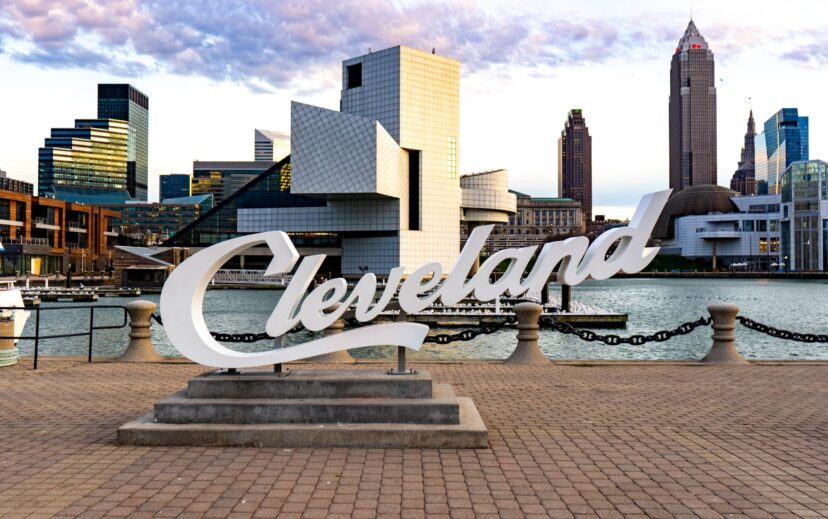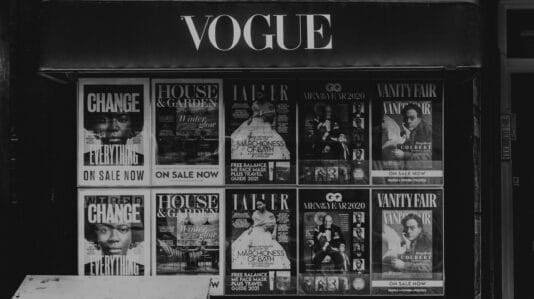A Cleveland-based roller derby team operating under the moniker “Cleveland Guardians” sued the city’s Major League Baseball team for trademark infringement after it was announced that the baseball team would be changing its name from the Cleveland Indians to the Cleveland Guardians. The two teams came to a surprising resolution: they will both continue to use the Guardians name.
The non-profit roller derby team has used the name “Cleveland Guardians” since 2013. Their trademark was formally registered with the Ohio secretary of state in 2017, they have continuously sold a range of merchandise bearing the team’s name for about seven years and they actively operate a website using the domain, clevelandguardians.com. According to the lawsuit filed in the U.S. District Court for the Northern District of Ohio, the professional baseball team offered to pay a “nominal amount” for ownership of the trademark, which the roller derby team rejected. The roller derby team sought an injunction to stop the MLB team from using the same name.
In the lawsuit, Guardians Roller Derby v. Cleveland Guardians Baseball Company L.L.C., the roller derby team claimed that the baseball team knew that the Guardians existed long before they announced their name change, and that use of the name in the same city would lead to confusion. Meanwhile, the MLB team claimed that there is no conflict between the parties ability to operate with the same name in their respective business areas, and argue that there will be no consumer confusion between the two teams.
Despite the roller-derby team not having a federally registered trademark, owners of unregistered or state registered marks nevertheless have legal rights in the geographic areas where they operate. The laws concerning unregistered marks are derived from common law, leading these unregistered marks to be called “common law trademarks.”
What is a Common Law Trademark?
A common law trademark gives protection to a name, logo, symbol, design or phrase that identify the source of goods or services, despite not yet being registered with the federal United States Patent and Trademark Office (“USPTO”). Common law trademarks do not confer nationwide protection, rather common law trademarks are recognized only in the geographic area where the marked products are sold or advertised.
A party asserting common law trademark rights must establish that it is the senior (first) user of the mark, and that the mark has penetrated a certain geographic market sufficiently to establish those trademark rights. A mark user can acquire common law trademark rights by using the trademark in their ordinary course of business. Even though there is no application or registration process for common law trademarks, people asserting common law trademark usage are permitted to use to “TM” symbol.
Why Geography Matters with Common Law Trademarks
When it comes to common law trademarks, territory is key. The use of an identical or similar mark in the same area could confuse customers, leading to unfair competition. Common law trademark rights are limited to the geographic area where the mark is used and where it could reasonably expand.
Say you open a ski boot shop in upstate New York and operate under the same name for several years. Common law rights would likely prevent any other winter sports gear shop of the same name from operating in New York. However, your common law trademark rights will not stop a ski boot shop with your mark from opening in Colorado. This could lead to issues in marketing, especially in the ever-growing online marketplace and on social media.
Why Register a Trademark with the State?
The roller derby team in the Cleveland Guardians case is likely awarded some protection because they are registered at the state level. Although state registrations only provide protection in the state(s) in which they are registered, there is still a level of enforceability against potential infringers.
State registration of a mark is useful because it serves as certified proof that there is use of the mark and will dissuade others from attempting to use one that is confusingly similar. Despite the protection afforded by state registration, federal trademark registration with the USPTO will always provide the strongest protection of a mark.
What Damages or Remedies are Available for Trademark Infringement Claims?
If an owner of a trademark is successfully able to prove infringement, remedies typically include injunctive and monetary relief. A plaintiff may obtain damages for their losses as well as receive the alleged infringer’s profits from the infringement. In some cases, attorney’s fees and costs may be rewarded. Under the federal Lanham Act, as well as in some states, plaintiffs may also be able to recover treble damages if the alleged infringer acted intentionally and in bad faith.
What Are the Advantages to Federal Registration of a Trademark?
While courts historically recognize common law and state-level trademark rights, it is important to register your mark with the USPTO. The following are just some of the benefits of federal registration of a trademark:
- Exclusive, nationwide protection of you mark is automatically conferred
- You will receive official documentation of your mark ownership
- Notice will be provided to all others who wish to use the mark in their own capacity
- There will be greater advantages in court, including the right to sue infringers for statutory damages, and potentially receive triple damages for willful infringement.
- IP protection adds value to your business in the eyes of investors
If you believe your trademark rights are being infringed, or want to better protect your business and intellectual property, owners should seek experienced legal advice to ensure appropriate steps are taken to secure those rights from others.
Photo by DJ Johnson on Unsplash




